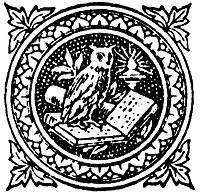Marginalia
Home
About Marginalia
Current Issue
Archived Issues
Notes to Contributors
Links to Other Online Journals
Marginalia -- The Website of the MRG
Literature and Heresy in the Age of Chaucer.
324 pages. Cambridge University Press, 2008. ₤50.00/$99.00.
ISBN: 978-0521887915 (hardback)
The latter part of Cole's text certainly fulfils his promise to look beyond the usual array of Wycliffite authors, with chapters on Chaucer, Hoccleve and Lydgate, before finishing with analysis of 'Margery Kempe's “lollard” shame'. However these readings would not hold were it not for the extensive work in Part I wherein Cole gives a close reading of documents from the Blackfriars Council, carefully delineating the roles of both Courtenay and Wykeham. Cole convincingly considers the case of William Swynderby, suggesting that Buckingham's condemnation of him is integral to the attempt to turn Wycliffism from a university-based to popular movement (and therefore dangerous and able to be quashed).
Cole's 'intermezzo', which argues for the need to use the terms 'lollard' and 'Wycliffite' discretely and without confusion will be welcome to all scholars who attempt to negotiate the tricky question of the terminology of heterodoxy and to teachers who have long desired a succinct summary for undergraduates (and this review follows his convention of not capitalising the first letter of 'lollard').
The title's use of Chaucer's name to attract the attention of a wider range of readers creates an expectation that Chaucer will be fairly central to the discussion. It is therefore surprising that the Chaucerian focus is almost exclusively on the under-studied Treatise of the Astrolabe. Cole meticulously traces 'Chaucer's use of a cluster of ideas and phrases that can be found only in one Chaucerian text – the Prologue to the Treatise on the Astrolabe – and only in one Wycliffite text, the General Prologue to the Wycliffite Bible' (p.81). This is an illuminating look at Chaucer's impulse to translate but I am reluctant to affirm the direct connection that Cole posits between Blackfriars, heresy and vernacular translation. The chapter is, though, a welcome reminder that Chaucer's works of translation may have more local sources and analogues than our usual preoccupation with the continental influence permits. Cole's reading of the work of Hoccleve and Lydgate asks us to reassess the extent of their orthodoxy, and his attention to the detail of Lydgate's sacramental theology is a highlight of the book, especially since, as Cole acknowledges, 'Lydgate does not worry about whether his version of the eucharist looks Wycliffite. He offers no disclaimers or apologies, no talk of “lollards.” He is satisfied enough to ground his exploration within the history of theology – an historicizing move that confirms the innovation of his own lyrical sacramentality' (p.152). In his final chapter, Cole offers an analysis of Margery Kempe that moves beyond the obvious drama of her self-aware self-defining by and against lollardy to consider the ways in which critics of Margery, from her contemporaries to our contemporaries, become trapped in binaries that prevent a baggage-free reading of the text.
While lollardy itself has received what some critics believe to be an unwarranted amount of attention in recent years, this book remains a welcome addition to current material. Its strong grounding in close reading of both historical documents and literary texts allows it to move the study of heterodoxy beyond the limitations of marginal works.
Linda R. Bates, University of Cambridge.
 Previous |  Next |
© 2004 The authors and the Medieval Reading Group at the University of Cambridge
No material may be reproduced without written authority.
Last modified on .
Marginalia -- MRG Website::Contact Us::About Us::Credits and Thanks::Search::Archives

